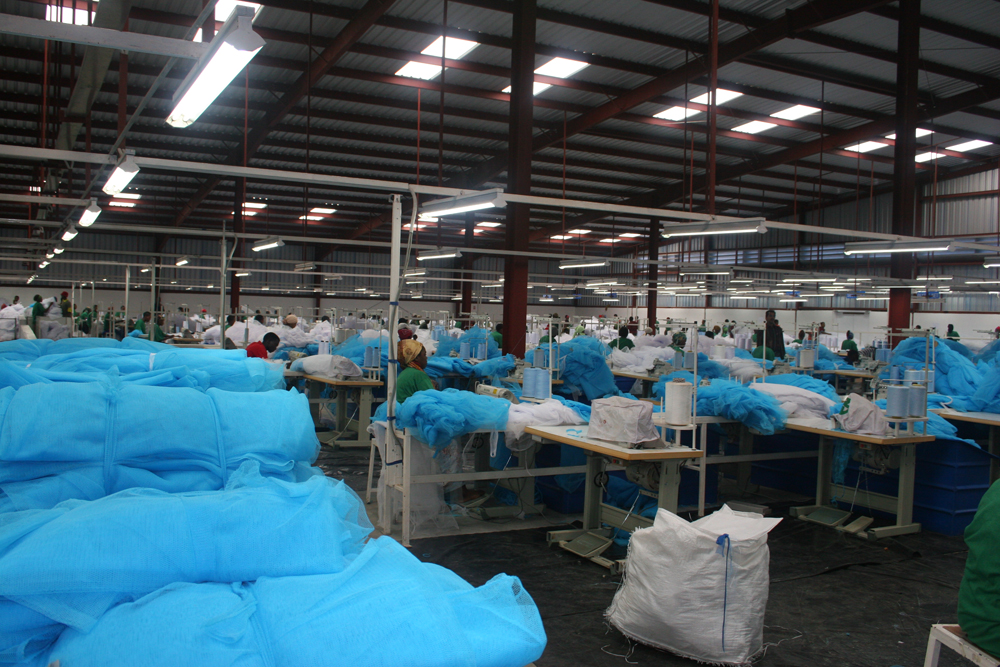THE application for the liquidation of the country's sole manufacturer of knitting yarn, Karina Textiles (Pvt) Ltd was approved last Thursday.
Karina Textiles shareholders had applied for liquidation this year after being placed under provisional liquidation last year.
Business had proven unviable.
The liquidator, Ms Theressa Grimel, confirmed the High Court's approval of the liquidation.
She said some of the company vehicles would be auctioned at the Karina offices in the Nyakamete Industrial area next Saturday.
Ms Grimel said she would advise on the dates of the next auction of company's other movable and fixed assets.
The liquidation of Karina Textiles will be another heavy blow on Mutare following the closure of Zimbabwe Coffee Millers and Cairns Food early this year.
Karina becomes the second major textile industry player to face closure after Kadoma's David Whitehead was put under judicial management last year. Mutare's largest employer, Mutare Board and Paper Mill closed shop in 2010 leading to the loss of jobs of thousands of full-time and contract workers.
Karina Textiles last year applied to the High Court for provisional liquidation, as the textile sector continued to struggle due to cheap imports from China and under-capitalisation. In its prime years Karina used to employ over 1000 workers.
Last month, the Minister of Industry and Commerce, Mike Bimha said the Government was also "looking at ways to regulate imports through tariffs to help local industries operate viably".
The Confederation of Zimbabwe Industries national vice president, Mr Henry Nemaire said the situation was worrisome.
"The company closures are now worrisome. As CZI we have since presented to Government short term and long term solutions that they should act on to revive our manufacturing sector.
"It is always better to prevent than to cure which is why they should put a hold on the increase of all utility charges, which were being suggested by the Zimbabwe Electricity Supply Authority and the National Social Security Authority," said Mr Nemaire.
He added that the Chiadzwa diamond companies should have an affirmative action to recruit locals from Manicaland given the increase in local company closures.
"Unlike in Bulawayo the youths there because of the Ndebele and Zulu dialects similarities, they can easily migrate to South Africa for employment. The youths in Manicaland on the other hand have nowhere else given that neighbouring Mozambique is not industrialized.
"That is why the diamond sector in Manicaland should have an affirmative action to recruit youths from Manicaland for that sole purpose alone."
Last month a report by the NSSA revealed that more than 700 firms in Harare and close to 1 000 in Bulawayo had closed shop.
This has resulted in thousands of workers being retrenched to add to the official unemployment rate estimated at 11 percent.
With the Government blueprint the Zimbabwe Agenda for Socio-Economic Transformation in place, it is hoped that the de-industrialisation of the textile sector will be averted by mobilising funds specifically for the industry.
- Post Business
 Concern over Masvingo black market
Concern over Masvingo black market  Kenya declares three days of mourning for Mugabe
Kenya declares three days of mourning for Mugabe  UK's Boris Johnson quits over Brexit stretegy
UK's Boris Johnson quits over Brexit stretegy  SecZim licences VFEX
SecZim licences VFEX  Zimbabwe abandons debt relief initiative
Zimbabwe abandons debt relief initiative  European Investment Bank warms up to Zimbabwe
European Investment Bank warms up to Zimbabwe  Young Investment Professional (YIP) Graduate Programme 2019
Young Investment Professional (YIP) Graduate Programme 2019 











 Young Investment Professional (YIP) Graduate Programme 2019
Young Investment Professional (YIP) Graduate Programme 2019
Editor's Pick